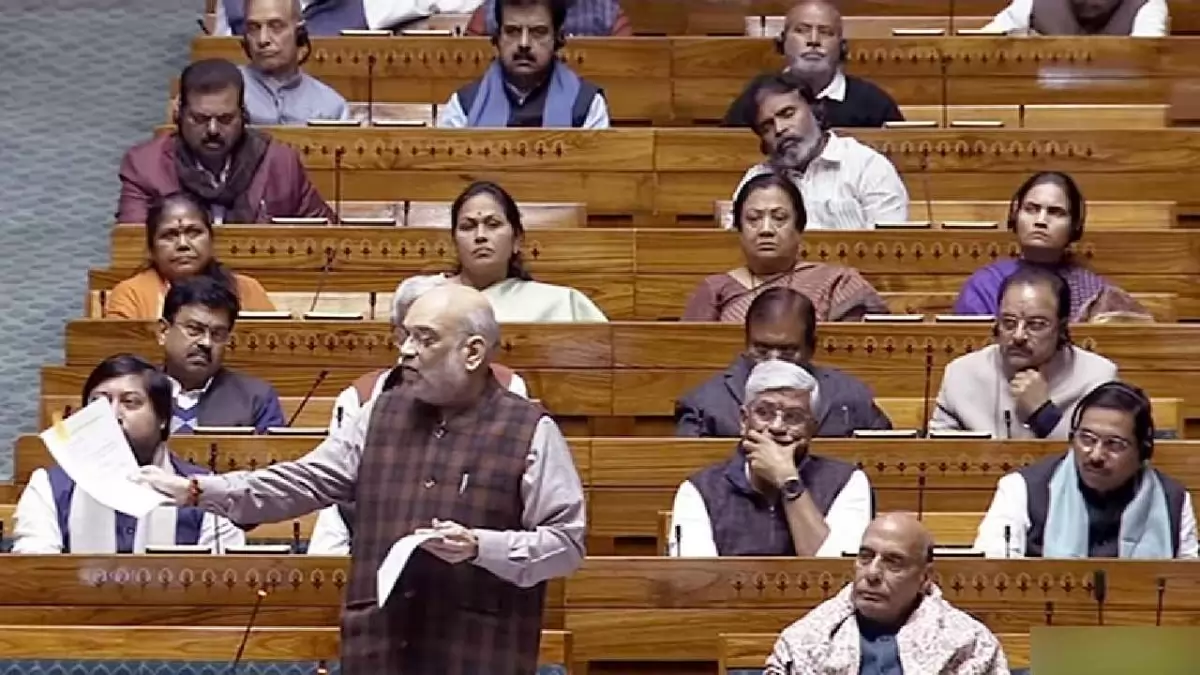
ANI
New Delhi: In a landmark move, the Lok Sabha recently approved three bills aimed at overhauling India's archaic criminal laws. Spearheaded by Home Minister Amit Shah, these bills signify a paradigm shift from the colonial-era legislations — the Indian Penal Code-1860, the Code of Criminal Procedure Act-1898, and the Indian Evidence Act of 1872. The Bills also inlude the provision of 'trial in absentia' which will enable the court torun proceedings
This bill aims to replace the age-old Indian Penal Code-1860. Shah emphasises that the revamp is not just a mere substitution but a stride towards a justice system rooted in Indian philosophies. The proposed changes seek to liberate individuals from a colonial mindset that merely penalises crimes without ensuring justice.
Replacing the outdated Code of Criminal Procedure Act-1898, this bill introduces several transformative provisions. One noteworthy addition is the provision for "Trial in Absentia," a significant step to expedite the trial process, especially in cases where the accused are residing in foreign countries.
This bill is poised to replace the Indian Evidence Act of 1872. By streamlining procedures and introducing stringent timelines, the new legislation aims to eliminate delays that have historically plagued the judicial system.
Amit Shah underscores the introduction of the provision for "Trial in Absentia" as a response to cases like the Mumbai bomb blast where accused individuals are hiding abroad. The new provision ensures that trials proceed even if the accused doesn't appear in court within 90 days. This move is expected to expedite the process of bringing fugitives to justice.
The proposed bills introduce a structured timeline for various legal processes. Accused individuals now have seven days to file a plea for acquittal, leading to a swift initiation of legal proceedings. The new legislation also mandates that cases must go to trial within 120 days, providing a time-bound resolution.
Recognising financial constraints as a significant hurdle for the underprivileged to access justice, the bills introduce provisions for plea bargaining within 30 days of the crime, leading to reduced punishment. Moreover, the requirement to present all documents within 30 days during trials aims to eliminate delays in legal proceedings.
Amit Shah sheds light on the extensive amendments brought about by these bills. In the Code of Criminal Procedure Act (CrPC), the sections have increased from 484 to 531, with 177 sections modified, 9 new sections added, and 39 new sub-sections incorporated. This significant update signifies a comprehensive effort to align the legal framework with contemporary needs.
India's stride towards a more contemporary and efficient justice system is encapsulated in these transformative bills. While the journey towards a reformed legal framework is ongoing, these amendments signify a crucial step in aligning India's laws with its cultural ethos and fostering a more accessible and timely justice system for its citizens.





Copyright © 2026 Top Indian News
